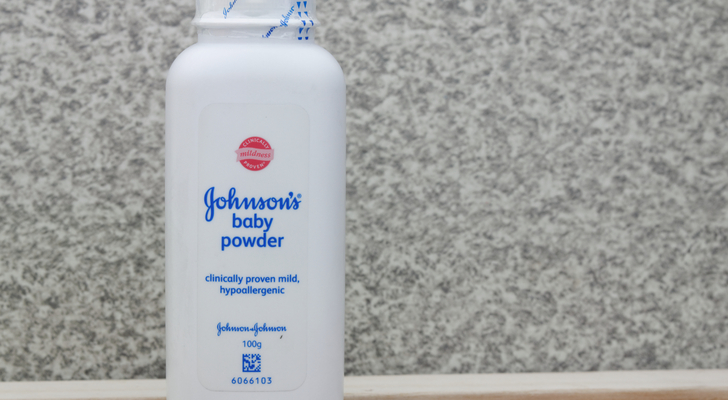It’s been a bumpy ride so far this year for pharmaceutical giant Johnson & Johnson (NYSE:JNJ). Johnson & Johnson has been weighed down by poor sentiment in the healthcare space, legal troubles and worries about further government interference in the industry. However, with JNJ stock nearly 20% off its January highs, now could be a good time to add it to your portfolio.
Johnson & Johnson’s Baby Care Woes
Although JNJ has been able to post respectable earnings reports over the past few quarters, investors have seen red flags with some of the firm’s businesses. One such concern has been Johnson & Johnson’s Baby Care unit. It has seen sales fall 20% since 2011 and posted a 14% decline in the first quarter of this year.
The reason for the stumble was JNJ’s failure to keep up with parenting trends. Millennial parents have become increasingly concerned about the ingredients in their children’s products. Johnson & Johnson’s lack of natural, organic options caused the brand to fall out of favor.
The firm is now re-launching its Baby Care line with a slew of products geared more toward current trends in hopes it can gain back some of that market share. However, the misstep has been heavy on JNJ investors’ minds for two reasons. First, the Johnson & Johnson brand name is very closely aligned to baby care products, so negative connotations could be extremely damaging. Secondly, and perhaps more importantly, it shines a spotlight on a major management oversight. How did JNJ watch sales decline for six years before figuring out a better strategy to pull in the new generation of parents?
Why It’s Not So Bad
I’ll admit that the baby care fail doesn’t paint JNJ management in a particularly flattering light. However, it isn’t quite as bad as it looks here. Yes, the majority of people probably know the name Johnson & Johnson because of the company’s hygiene products, but the firm’s consumer products arm makes up just 10% of its overall profit. Keep in mind that Baby Care is only a fraction of that 10% as well.
So, although JNJ can’t simply ignore its Baby Care failure, one of the major benefits of owning JNJ stock is the fact that the business is extremely well diversified. A problem in one sector doesn’t drag the whole business down. This applies for macroeconomic issues as well. JNJ is a great stock to own in a recession because the firm’s diverse business means it can weather a storm.
Patent Losses for Johnson & Johnson
Another big issue for JNJ stock
has been patent losses in its pharmaceutical business — which, unlike personal care, makes up a relatively large chunk of the company’s overall profit.
Most notably, Johnson & Johnson lost its patent protection for an autoimmune disorder drug called Remicade. Investors were understandably worried by this development as Remicade has been one of the top-selling treatments for autoimmune disorder patients.
Johnson & Johnson Response
Again, I think the worries regarding patent losses are overdone. For one, Johnson & Johnson management immediately responded by negotiating deals with insurers to make sure Remicade didn’t lose market share. While these deals involved cutting the cost of the drug, which significantly reduced its overall sales, it was a smart and necessary move that still brought in profits for JNJ.
Not only that, but Remicade is difficult to manufacture so generic options are likely to be limited regardless of its patent status.
The Trump Effect on Johnson & Johnson
Another weight on JNJ stock this year has been worries about government intervention on drug prices. Investors’ fears were confirmed recently when Trump announced a new plan that will lower healthcare costs by targeting drug prices — specifically those purchased through Medicare Part B. Remicade is one such drug covered under Medicare Part B. And it may face even more pricing pressure if Trump’s plan goes ahead.
The drug pricing issue is certainly worth keeping an eye on. But it’s something that investors have been preparing for over the past few years as politicians hammer on about plans for healthcare reform. This has been closely watched by investors and drug companies have had a lot of time to prepare for government intervention.
JNJ CEO Alex Gorsky said that the company is reworking its portfolio in order to protect the JNJ’s income in the face of pricing regulations. Remicade has been a blockbuster drug for JNJ but it isn’t the company’s only hit. Two other autoimmune disease treatments, Simponi and Stelara, have already exceeded Remicade sales.
The Bottom Line on Johnson & Johson
There’s no question that Johnson & Johnson is facing headwinds. However, its massive, diverse portfolio makes it a relatively safe bet even in current conditions.
Long-term investors will have to ride out a little turbulence as the drug pricing issue continues to develop. But JNJ’s 2.91% dividend yield will help cushion the ride.
As of this writing, Laura Hoy did not hold a position in any of the aforementioned securities.

